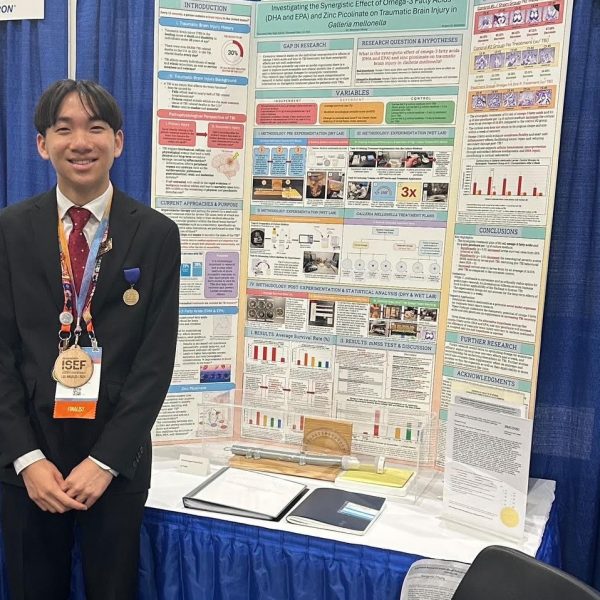Study or Sleep?
The clock read 3 a.m. when you finally went to sleep on Sunday after cramming all night for your Monday 7 a.m. test. With just four hours of sleep, you are barely able to keep your eyes open as you look over the 50-question test on your desk. As you read the questions knowing the topics cold, you suddenly realize it is all a jumble and you can’t figure out the answers, your anxiety kicks in.
Society has popularized late night study sessions creating a cultural trend where most high school students subscribe to this form of lifestyle, but the reality is that sleep deprivation disrupts the learning process.
Insufficient sleep the night before a test results in lower test performance the next day. The exhausted neurons in the brain are not able to function accurately, decreasing the capability to remember previously learned information. The brain needs time to absorb the information it has learned throughout the day. A mere three hours of restless sleep is not going to cut it. The National Sleep Foundation said that teens function best with 8.5 to 9.25 hours of sleep a night.
Most high school students believe they can have minimal hours of sleep during the week, since they can make up for it over the weekend. That is not a normal or healthy schedule for the body. When you take that long nap after a night of two hours of sleep, you are not regaining the sleep you lost from the night before.
In a recent Daily Mail article, Andrew J. Fuligni, said how sacrificing sleep for cramming, is actually counterproductive. Not only does staying up late the night before harm students test taking skills the next day, but it also affects the days to follow. High school students are exhausted day after day because of the stressful, late night cramming sessions. They are not retaining information long term, leaving them with little knowledge to apply for future finals. Since the information fades quickly, they are back in the same situation the night before the final. Studies have shown that students perform better if they learn the material over weeks and months, not hours.
If there are piles of paper scattered on your desk, you would use a filing cabinet to properly store them away, so when you return things are simple to find. Grabbing papers and cramming them into draws may be easier to hide your mess five minutes before a friend comes over, but later on when you need to find that certain document, it’s a pain in the butt. The brain is similar to a filling system, you need time to organize all the information the brain is in taking before being able to use it effectively. Packing in hundreds of facts your brain is identifying for the first time and then some how expecting your mind to know where everything is, will not be beneficial during the exam.
Cramming also has negative effects on the human body. The lack of sleep on a routine basis affects the student’s emotional stability, resulting in irritability and depression. With multiple tests high school students face on a weekly basis, they do not need anything else adding to their already high stress levels. Other issues that may arise are poor complexions and weight gain, long-term sleep deprivation puts a teen’s body into turmoil.
Sleep deprivation hampers the teen’s ability to develop in the essential parts of the brain and body, knocking the body clock out of whack. Resuming a normal sleep pattern the day after the test is vital to getting the student’s body clock back on schedule.
Don’t procrastinate; your health is too important.
Your donation will support the student journalists of Thousand Oaks High School. Your contribution will allow us to purchase equipment and cover our annual website hosting costs.







